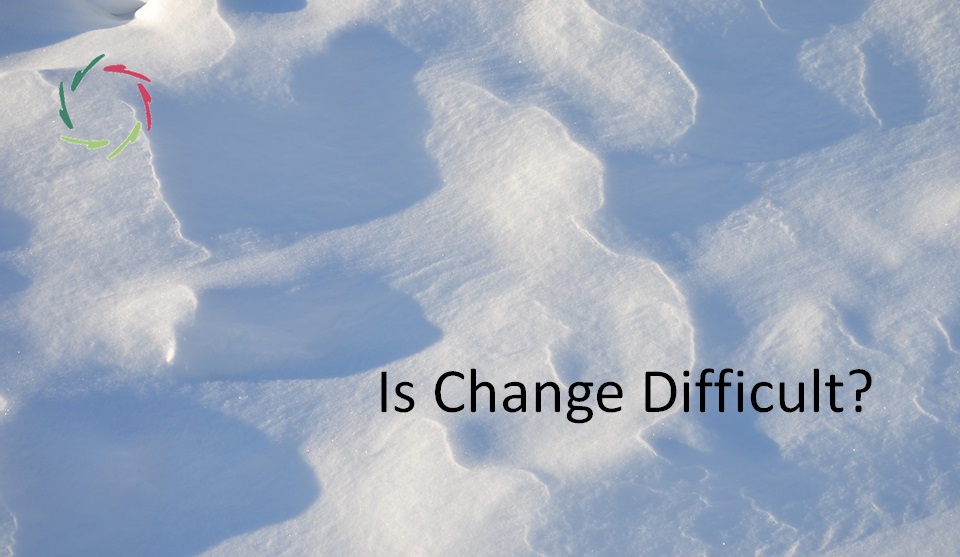Is Change Difficult?

Especially deep change. It’s a cultural thing to find it difficult. And so it is. Is it?
Coaching is about change, one way or another. [see: “Coaching is everywhere“]
Being a coach
Your opinion as a coach matters in this. If you think change is difficult, then you risk conveying this to the coachee.
In this – as always – your implicit conviction matters more than your explicit words or even your explicit conviction (the one you are consciously aware of). A deep belief is generally more powerful than a superficial one. If they are opposed to each other, the implicit will eventually have the most chances to prevail.
Being a coach, there is what you think you do, and there is what you do. Doesn’t that make it so much more interesting ― knowing it’s much about you?
The non-conscious makes change-from-outside difficult
That is because there are so many inner mental patterns intertwined and mutually connected in many complex ways, each acting somewhat from and for its place in the whole. [see: “The Non-Conscious is No Automaton“]
Changing one of these patterns brings about change in – sometimes many – others that maybe aren’t ready or willing to change. So there is what appears to be ‘resistance.’ Change may be tough this way.
Change from inside
From inside, change may still not be straightforward, but at least, if managed well, there is a trust that any change will come at its own pace, not forced. It’s an invitation, a suggestion. In the best case, it’s a suggestion that translates into a suggestion from inside.
Auto-suggestion
Indeed, that’s where it comes from: AU-RELIS.
Note that (auto-)suggestion has direction. It’s not chaotic. It invites change in a specific way. The organism (the non-conscious) is free to evolve in the most fitting manner. It is enticed to choose for itself the best path towards attaining the goal.
This way, energy is given to change, and obstacles are taken away from it.
That makes change a lot easier.
The difficulty (challenge) lies more in how to perform this autosuggestion-thing. OKAY. That’s where AURELIS wants to help as much as possible.
Most important in this is that the change should intimately belong to the changer. It should not be imposed. There should not be the intention to try to impose it ― a matter of ethics and efficiency.
The idea of difficult change
People generally aren’t used to the idea of autosuggestion or subconceptual nudging. This way, they don’t readily see the proper place for it (which is also not always everywhere).
This way, the idea is that change needs to be difficult ― and so it becomes.
Much of the difficulty lies in a lack of understanding how mind-brain is involved. [see: “Mental Change: How it Works“]
Coaching, again
Trying to convince your coachee through argumentation that ‘change is easy’ is bound to fail.
Luckily, you can use autosuggestion to let your coachee feel it. The two possible challenges in this are:
- coach-related: You should be implicitly convinced.
- coachee-related: You need to know how to use autosuggestion to reach the coachee from inside out, time and again. As said, this is the new challenge.
Did I say it was going to be easy?
No? Then I say it now. It’s very easy. [see: “Importance of Spontaneity“]
And at the same time, it’s very difficult. Even more, the difficulty comes first. It’s like forming a flower, and then it opens, and then it’s open.
If you feel this, you’re on your way.


